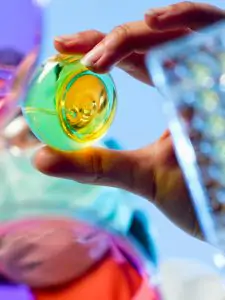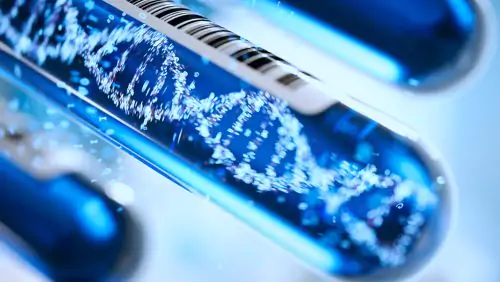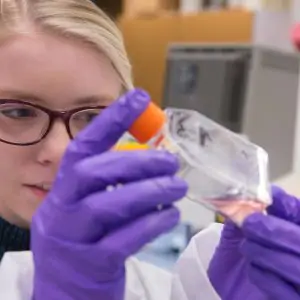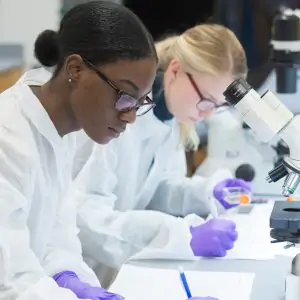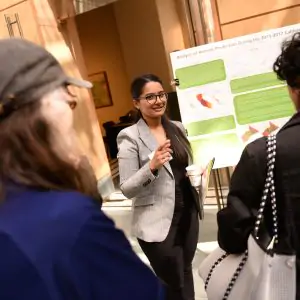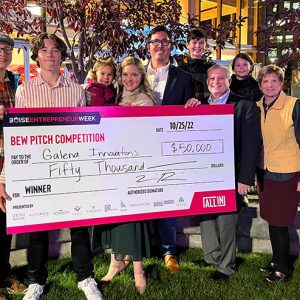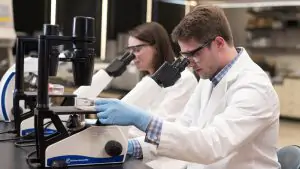Fall Term 2025 and Spring Term 2026 Applications Now Open
MS in Biotechnology
MS in Biotechnology Program Overview
Life sciences. Technology. Business.
Biotechnology is about making discoveries that make the world a better place, and about bringing those concepts to life… and into the market. Spanning industries, including pharmaceuticals, agriculture, healthcare, environment, energy, national security, biotechnology covers roles from the R&D lab, product development, and manufacturing to sales, marketing, finance, and law.
This robust graduate program at Johns Hopkins University offers concentrations and elective courses that result in a degree designed to fit your career aspirations.
Study on Your Terms
Designed for both part-time and full-time students, this biotechnology master’s program offers you the flexibility to take classes online or on-campus in the evenings and on weekends.
What It’s Like to Study Biotechnology at AAP
In-Depth Article
Biotechnology Master’s Degree: Career Opportunities & Paths
Biotechnology offers diverse career opportunities ranging from agriculture to healthcare to national security. A master’s in biotechnology can advance your career, allow you to explore new fields, and make a positive impact on the world.

Robin Odom ’09, MS in Biotechnology Infection Control Consultant at National Institutes of HealthThe program provided a solid foundation in biodefense, both from a historical and present-day perspective and has proved invaluable to me in my current position.
Why to Pursue an MS in Biotechnology at Hopkins
Learn From Leading Researchers
Exciting things are happening in the biotechnology labs at Johns Hopkins. You’ll learn from experts who are actively researching, making discoveries, and publishing in an evolving field.
Explore Concentrations and Courses
Customize your program with electives based on your professional and scientific interests. You may also concentrate in one of six areas, including biodefense, regulatory affairs, or drug discovery.
Join a Diverse, Successful Scientific Community
When you enroll at Johns Hopkins, you become part of an international community of biotechnology, research, and medical professionals who work in labs, universities, and companies around the world.
Share Your Discoveries: The Research Symposium
Each May our graduate students are invited to showcase their independent research. The annual event features poster presentations, a notable guest speaker, and more.
MS in Biotechnology and MBA Dual Degree
The MS in Biotechnology/MBA is one of the nation’s first and largest dual graduate degree programs in biotechnology and business. The program allows you to earn two advanced degrees in less time than it takes to earn them separately.
Biotechnology News
Take the Next Step
Prepare yourself with the latest knowledge and experiences to excel across the greater biotechnology industry.
